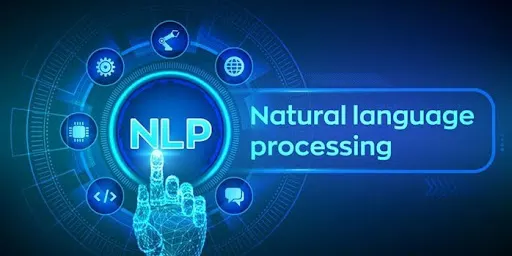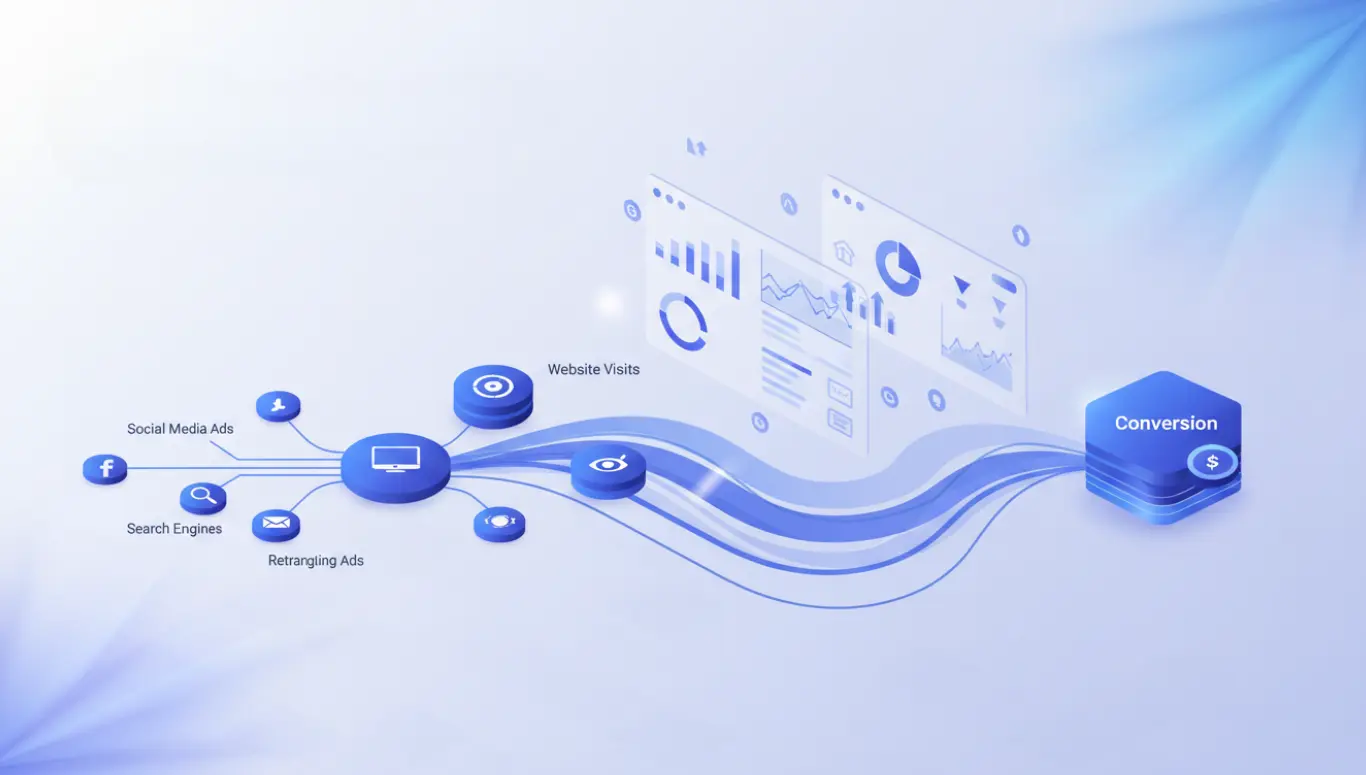Customer service has evolved beyond simply resolving issues; customers now expect a seamless, rapid, and personalized experience. This shift is a key driver behind the significant growth of the NLP market, which is projected to reach approximately $53 billion in 2025 and exceed $200 billion by 2031, with an annual growth rate of nearly 25%.
This growth is driven by businesses' increasing demand for innovative methods to streamline operations, enhance customer experiences, and leverage cloud-based NLP for improved scalability and cost efficiency.
As organizations consistently develop creative ways to provide a customer experience, at the core of this transformation is Natural Language Processing (NLP).
This area of Artificial Intelligence (AI) is transforming customer service, and chatbots specifically, into intelligent assistants. If you want to catch this shift as it happens, start by getting to know NLP; it’s already changing how businesses talk to their customers every day.
The Development of Customer Support: From Manual to Intelligent
For many years, support teams have depended heavily on human agents to support their customers. This modality often resulted in long wait times, inconsistent customer service experiences, and high operational expenses.
Basic chatbot technology was a start, allowing companies to automate basic inquiries and reduce the number of queries that fall to human agents.
However, basic chatbots represented just that - basic. They were (and still are) slow to process context, couldn't fathom nuance, and could only respond to the pre-set questions and answers.
Soon, users recognized the limits to their usefulness, leading to a frustrating experience for both customers and customer service organizations. Enter Natural Language Processing. This is the field responsible for enabling computers to understand, interpret, and generate human language independently.
AI technology that enables a machine to read text, hear speech, interpret the meaning, and even communicate with us in a way that feels natural and intelligent. This remarkable innovation has provided new possibilities for user interactions with customer support teams, bridging the distance between humans and computers.
NLP's Impact on Customer Support: A Deep Dive
NLP's influence on customer support is multifaceted, touching every aspect of the interaction. Here are a few crucial regions where it's making a big difference:
1. Enhanced Chatbot Capabilities: Beyond Scripted Responses
The most visibly transformed area through NLP is that of chatbots. Traditional chatbots are rule-based and scripted. If the customer’s query does not match the correct rule, the chatbot stops processing. Chatbots powered by NLP are programmed to understand the customer’s intent, not just the keywords.
- Intent Recognition: There are NLP algorithms that can take a customer's input and effectively understand what the customer is attempting to do or ask. By understanding the customer's intent, the chatbot can provide the correct information even if the request is slightly off or requires some form of contextual information.
- Sentiment Analysis: One powerful application of NLP is its ability to detect the emotional tone in a customer’s message, whether they’re frustrated, angry, delighted, or upset. By understanding the customer’s state of mind, a chatbot can adapt its responses accordingly, for instance, quickly routing an angry customer to a human agent or showing extra empathy when needed.
- Contextual Understanding: NLP enables chatbots to track past interactions, allowing them to retain context within ongoing communications. This means that customers do not have to keep repeating themselves, making the experience seamless and smooth.
- Personalization: With the customer's past interactions and preferences understood, NLP-based chatbots can provide tailored recommendations, proactively solve problems, and personalize how inquiries are addressed.
Consider a scenario where a customer shares his problem, ‘My internet isn’t working.’ A standard chatbot might simply reply, ‘Did you try restarting your router?’.
On the other hand, an NLP-powered chatbot can detect the underlying frustration in the message, access the customer’s account details, check for outages in their area, and even suggest advanced troubleshooting steps. Many NLP models are built to handle such variations in queries, ensuring responses feel both helpful and empathetic in a customer service setting.”
2. Efficient Call Routing and Triage
Before a customer even speaks to a human agent, NLP can play a crucial role in optimizing the support process.
- Automated IVR Systems: Interactive Voice Response (IVR) systems, once infamous for frustrating customers, are becoming smarter with NLP. Instead of forcing people to slog through endless menus and number selections, NLP allows IVRs to understand natural language, quickly identify the customer’s need, and route the call to the correct department. In many cases, it can even resolve simple, routine issues on its own, without human intervention.
- Query Categorization: NLP can help surface incoming text-based inquiries (emails, chat messages) and automatically classify them into various categories without human involvement. The benefit of analyzing incoming text-based issues enables IVR systems to route customers to the service agent or employee best positioned to resolve their issues, while minimizing total resolution time and enhancing first-contact resolution.
3. Agent Assist and Knowledge Management
NLP doesn't just benefit customers; it also significantly empowers human support agents.
- Real-time Information Retrieval: During a conversation with a customer, a tool powered by NLP can listen to (or read) the chat while the agent is engaged, providing all relevant articles, product information, or customer history for the agent to access easily. This capability of "agent assist" means that the amount of time spent searching for the correct information is significantly reduced, leading to faster and more accurate responses.
- Response Generation: For more common questions or requests, NLP can offer pre-written messaging or draft new messaging based on the customer service interaction, which the agent can then evaluate and send. That way, the messaging remains uniform, and agents can focus on handling complex cases.
- Performance Analysis: NLP can analyze agent conversations to uncover areas for improvement, highlight recurring customer issues, and provide a clear understanding of agent performance. For organizations, this addresses larger challenges, including inconsistent service quality, lengthy training cycles, agent burnout, missed customer pain points, and compliance risks. Armed with these insights, businesses can design more effective training programs, optimize service processes, and enhance both efficiency and customer satisfaction.
4. Proactive Engagement with Customers
Beyond reactive support, NLP is enabling businesses to anticipate customer needs and engage proactively.
- Identifying Churn Risk: NLP models can scan customer conversations and sentiment to identify patterns that signal dissatisfaction or the risk of churn. By catching these early warning signs, companies can step in with timely support or retention offers, often preventing a customer from leaving before it’s too late.
- Personalized Outreaches: Building on previous communication patterns and proposing predicted wants/needs to customers, pure NLP applications will help craft campaigns and communications that are highly person-specific, offering meaningful promotions or solutions before a customer even realizes they need them.
Why is NLP Essential?
NLP has become the backbone of how modern businesses talk, listen, and respond to their customers. It takes all those overwhelming emails, chats, and reviews and turns them into insights companies can actually use.
Why does that matter? Because NLP helps you -
- Catch emotions early → Spot frustration or churn signals before a customer walks away.
- Make it easily understandable → Smarter IVRs and chatbots handle routine tasks, allowing people to focus on more complex issues.
- Make sense of the noise → Turn endless text data into decisions that actually move the needle.
- Personalize at scale → Engage customers like you know them—without having a thousand agents on standby.
- Stay compliant → Keep messaging consistent and reduce the risk of slip-ups.
At the end of the day, NLP is no longer “nice to have.” It’s the difference between businesses that just manage conversations and those that actually build relationships.
Here are some FAQ on NLP that you should be aware of:
1: Can NLP chatbots handle complex customer queries?
Answer: Yes. Thanks to deep learning and better contextual analysis, today’s NLP-powered chatbots can manage longer, back-and-forth conversations and even tackle more complex queries. That said, human agents are still essential when things get tricky or require a personal touch.
2: Is NLP better than rule-based chatbots?
Answer: Yes. Unlike old rule-based chatbots that stick to rigid scripts, NLP chatbots understand context and adjust on the fly, making conversations far more flexible, accurate, and engaging for customers.
3: Can NLP-powered chatbots replace human agents?
Answer: NLP-powered chatbots are great at handling the routine, repetitive stuff, but they’re not here to replace human agents. When it comes to complex or sensitive issues, you still need people because empathy and nuanced problem-solving can’t be automated
4: What are the limitations of NLP in chatbots?
Answer: NLP systems aren’t perfect; they can stumble over slang, vague questions, or tricky multilingual phrases. But ongoing training, clean data, and a bit of human oversight can overcome these challenges.
5: Is NLP in chatbots secure for handling customer data?
Answer: Yes. With the proper encryption and compliance in place, NLP-powered chatbots can safely process and protect customer data. Of course, it’s on businesses to back that up with strong privacy practices.
6: How does NLP reduce customer support costs?
Answer: By automating repetitive tasks and scaling responses 24/7, NLP chatbots reduce the need for large support teams, cut operational costs, and improve efficiency.
Customer support has come a long way from long wait times and robotic scripts. With NLP, businesses now have the tools to listen more effectively, respond more intelligently, and even anticipate what customers might need next. It’s about creating interactions that feel natural, empathetic, and personal.
For organizations, the value is clear: lower costs, sharper insights, and stronger customer loyalty. For customers, it means fewer frustrations and more seamless experiences.
In short, NLP is no longer a futuristic concept; it’s here, and it’s quietly reshaping how companies connect with people every single day. The real question isn’t “Should we adopt NLP?” but “How quickly can we bring it into our customer experience strategy?”


